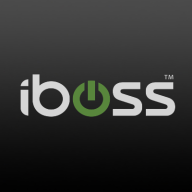


Zscaler Zero Trust Exchange Platform and Cisco Secure Client (including AnyConnect) both compete in the cybersecurity and networking space. Based on the data comparisons, Zscaler has the upper hand due to its seamless integration and convenience features combined with comprehensive security offerings.
Features: Zscaler Zero Trust Exchange Platform offers seamless integration with single sign-on and automatic VPN connection, eliminating the need for constant logins. It provides a scalable solution with extensive security features like CASB and data protection. Cisco Secure Client delivers reliable VPN connectivity with single sign-on, ease of use, and smooth integration with existing infrastructures like Active Directory.
Room for Improvement: Zscaler Zero Trust Exchange Platform could improve by enhancing speed, SCMP support, and reducing costs. It faces challenges with legacy systems and occasional latency issues. Cisco Secure Client needs to address Linux compatibility, improve its user interface, enhance auto-reconnect capabilities, and incorporate modern authentication methods.
Ease of Deployment and Customer Service: Zscaler Zero Trust Exchange Platform features a flexible cloud-first deployment approach and mixed user experiences with technical support. Cisco Secure Client is predominantly on-premises or private cloud implemented with generally positive customer service reviews, though some users face licensing complexities and documentation inconsistencies.
Pricing and ROI: Zscaler Zero Trust Exchange Platform is perceived as expensive due to costs for additional features, yet users acknowledge its effectiveness and ROI. Cisco Secure Client is considered costly compared to solutions like Fortinet, which offers free VPNs with firewall purchases, but its ROI is typically satisfactory.
| Product | Market Share (%) |
|---|---|
| Zscaler Zero Trust Exchange Platform | 17.4% |
| iboss | 2.4% |
| Cisco Secure Client (including AnyConnect) | 3.6% |
| Other | 76.6% |



| Company Size | Count |
|---|---|
| Small Business | 6 |
| Midsize Enterprise | 6 |
| Large Enterprise | 5 |
| Company Size | Count |
|---|---|
| Small Business | 26 |
| Midsize Enterprise | 10 |
| Large Enterprise | 46 |
| Company Size | Count |
|---|---|
| Small Business | 16 |
| Midsize Enterprise | 11 |
| Large Enterprise | 41 |
Iboss offers a comprehensive cloud-based security platform valued for its scalability and autonomous features, ensuring robust security with easy deployment and management capabilities.
Renowned for its robust security architecture, Iboss integrates seamlessly within diverse networks, delivering efficient granular filtering and advanced content categorization. Its single pane of glass console provides ease of management, allowing rapid scalability suitable for rapidly deploying environments. Operates in BYOD setups due to inline filtering without device installation. Integration with cloud-based applications enhances user control, and features like SASE, SSL inspection, and ChatGPT risk protection stand as highlights. Despite its strengths, users have pointed out areas for enhancement like direct navigation in reports, SSL decryption, and better cloud integration while having room to improve data loss prevention.
What are the most important features of Iboss?The usage of Iboss spans educational institutions, specifically K-12, to enforce internet policies, protect data, and support remote work environments. It provides web filtering and security frameworks to ensure safe browsing. Its platform-as-a-service model offers flexibility for both cloud-based and on-premises requirements, integrating seamlessly to deliver enhanced security features suitable for various deployment needs including zero trust, CASB, and network security for work-from-home setups.
Cisco Secure Client (including AnyConnect) delivers reliable, stable connectivity and seamless integration with Active Directory, ensuring secure remote access through a one-click VPN capability. It's lightweight, user-friendly, and supports major operating systems, enhancing remote work flexibility.
Cisco Secure Client, including AnyConnect, is designed for secure remote connectivity, offering multi-factor authentication, advanced malware protection, and automatic error diagnostics. Compatible with Windows, Mac, and Linux, it provides an intuitive setup and a clean interface. While it excels in ease of use, issues such as the outdated Linux build and the need for modern UI enhancements persist. Users also face connectivity challenges with frequent updates and high prices, alongside the need for better endpoint security and system integration. Popular for remote work, it facilitates secure access to corporate networks, allowing seamless interactions with resources like emails, documents, and applications.
What key features does Cisco Secure Client offer?Cisco Secure Client is widely implemented across industries for secure remote connectivity, especially in sectors requiring constant access to servers, data centers, and research labs. It supports remote work by enabling employees in diverse fields to access internal resources efficiently, maintaining productivity and security.
Zscaler Zero Trust Exchange enhances security with seamless cloud-based connectivity and VPN-less operation, offering integration with multiple identity providers and advanced security features, suitable for remote work environments.
Zscaler Zero Trust Exchange provides secure, adaptive connectivity without traditional VPNs, allowing organizations to replace legacy systems and bolster remote work security. The platform offers cloud-based protection, single sign-on, dynamic URL categorization, and scalable solutions. While advanced security features like DLP and threat protection enhance data protection, users may face issues with speed, connectivity, and some customization options. Integration challenges, latency due to multi-tenant hosting, reporting delays, and licensing costs require consideration. It supports secure internet access and private application security, ensuring traffic control and data compliance.
What are the key features of Zscaler Zero Trust Exchange?Zscaler Zero Trust Exchange is deployed across industries to secure remote access and enforce zero trust principles. Organizations in finance, healthcare, and technology sectors utilize it for secure internet access and visibility into cloud applications, enhancing performance and compliance in dynamic environments.
We monitor all ZTNA as a Service reviews to prevent fraudulent reviews and keep review quality high. We do not post reviews by company employees or direct competitors. We validate each review for authenticity via cross-reference with LinkedIn, and personal follow-up with the reviewer when necessary.